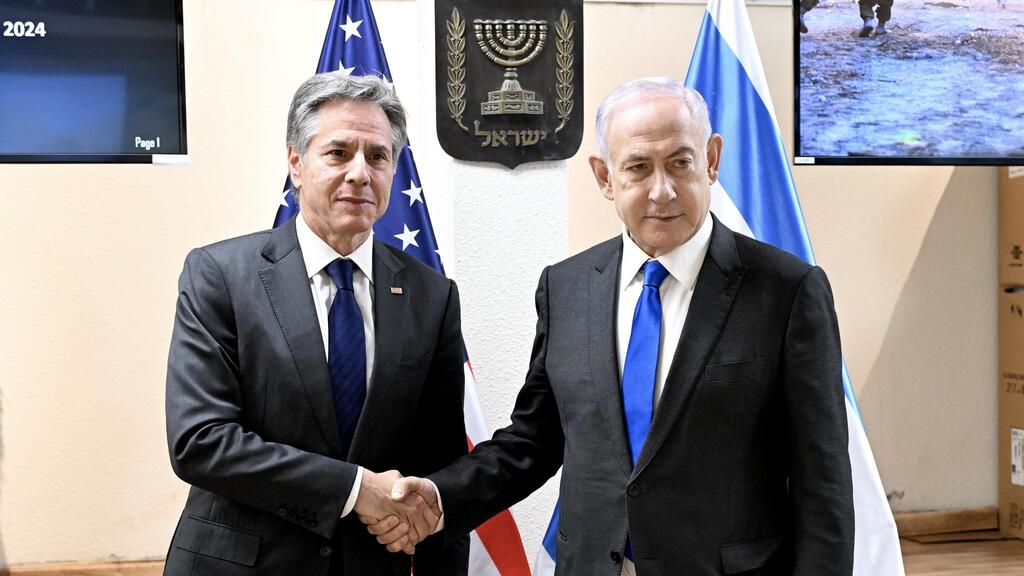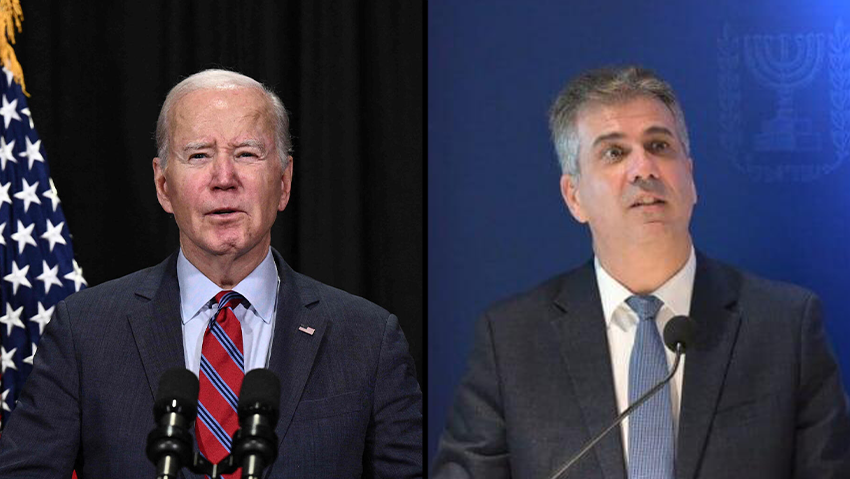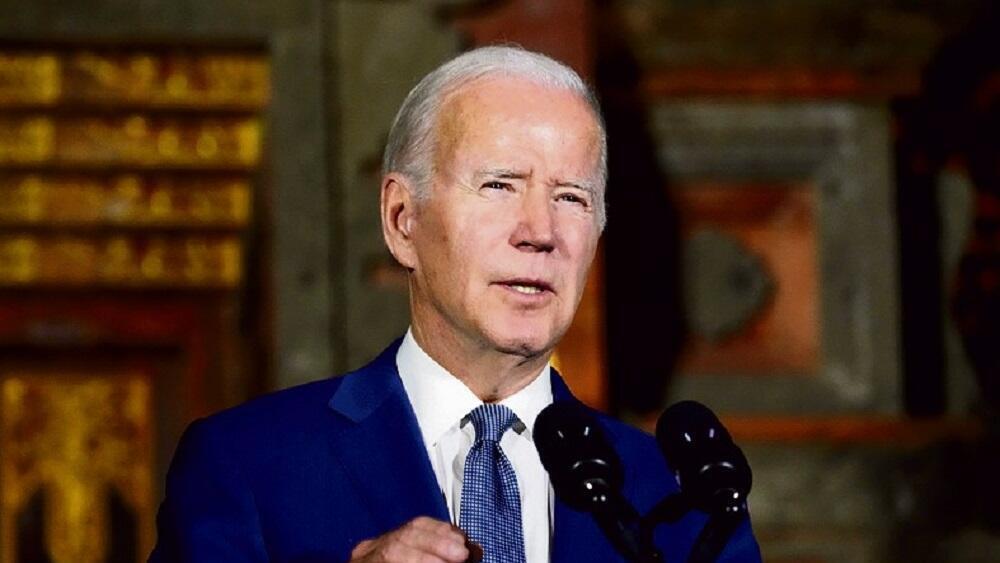Getting your Trinity Audio player ready...
Amid escalating tensions with the Biden administration, Israel's Energy Minister, Eli Cohen, who until recently served as the Foreign Minister said on Wednesday that if the U.S. does not provide unequivocal support to Israel, "it has no role in the Middle East."
Cohen said Israel is America's ally and the sole democracy in the region, sharing the same values. "Let me tell you who is observing the ongoing conflict: the Saudis, the Emiratis, and the Bahrainis. They say that if the U.S. doesn't back Israel fully against those who threaten us and Iran's proxies, it certainly won't back them either."
He said the Saudis were keen on securing an agreement with Israel and they desire a defense pact with the U.S. against Iran. "Their adversaries are Hamas, Islamic Jihad, and the Houthis. An agreement is achievable, but it requires strength, stability, and determination," Cohen said.
The minister attributed disagreements between the government and the Biden administration to the upcoming U.S. presidential elections, dismissing any other potential causes. "I find no reason for a shift in U.S. policy from three months ago," he said. "Israel remains unchanged, and so does Hamas. There have been numerous instances in history where our actions diverged from U.S. requests. It's possible to hold differing views, we are a sovereign nation and we must ensure a secure return to the north. Thus, in my view, we need to act in Rafah - even if it means standing alone. We need to obliterate the memory of Amalek - Hamas and its brigades in Rafah."
The relationship between Israel and the United States has indeed been marked by escalating tension over the past few months. U.S. Secretary of State Antony Blinken's visit two weeks ago was particularly strained, as one could cut the tension with a knife during his sit down with the war cabinet. Blinken cautioned that absent a post-conflict plan, Israel risks losing global support and legitimacy, potentially finding itself ensnared in Gaza indefinitely, unless it advances a governmental alternative.
Blinken further stressed the risk of losing global legitimacy upon his departure from Ben Gurion Airport, stating, "A military operation in Rafah introduces the risk of exacerbating Israel's isolation globally, and poses long-term security threats." Despite American pressure regarding Rafah, Prime Minister Benjamin Netanyahu, after his meeting with the Secretary of State, asserted that Israel sees no path to defeating Hamas without entering Rafah. "I conveyed to him that while we hope to carry out this operation with U.S. support, we're prepared to act alone if necessary," Netanyahu added in a video he published following the meeting.
A week prior to the visit, Israel dispatched a letter to the U.S., signed by Defense Minister Yoav Gallant. In the letter, he assured that Israel utilizes weapons received from the U.S. in compliance with international law and does not inhibit the delivery of American humanitarian aid to the Gaza Strip.
The requirement for Israel to send this letter was precipitated by a directive issued in February by U.S. President Joe Biden, titled "National Security Memorandum". This directive stipulates that arms sales to U.S. allies, including Israel, are contingent upon the state's firm commitment to conduct warfare in accordance with international law, uphold human rights, minimize civilian harm, and allow for humanitarian aid.
The U.S. chose not to veto a proposal in the UN Security Council that called for an immediate ceasefire during the month of Ramadan. The Prime Minister announced that a delegation, including the head of the National Security Council, Tzachi Hanegbi, and Minister Ron Dermer, would not depart for Washington should the U.S refrain from using its veto in a ceasefire resolution.
And yet, the U.S. opted to merely abstain from the vote - a vote that did not bind the release of hostages to a ceasefire - given that the proposal did not condemn Hamas. This decision allowed the resolution to be endorsed by 14 countries, a move met with applause in the Security Council.
3 View gallery


U.S. Secretary of State Antony Blinken with Prime Minister Benjamin Netanyahu
(Photo: David Azagury, US Embassy Jerusalem )
Following the resolution's approval, an American official expressed surprise during a press briefing at Netanyahu's "sudden decision" to call off the Israeli delegation's trip to Washington. This delegation was expected to discuss with American representatives the potential operation in Rafah. The official suggested that Netanyahu's decision was an "exaggerated response", likely arising from "internal political tensions in Israel."
Several days later, Netanyahu informed members of the war cabinet he would be dispatching a delegation to Washington the following week. This announcement came just a day after he refuted a White House statement suggesting he had reversed his decision and resolved to send an Israeli delegation to discuss potential action in Rafah with American counterparts. According to political sources who spoke to Ynet, "Netanyahu realized he had made a mistake."
First published: 21:23, 04.03.24




